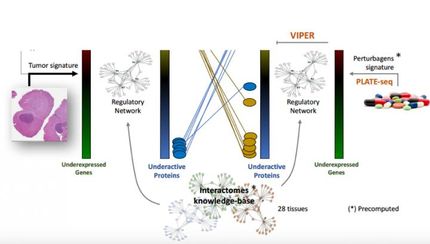Natural compound from 'pond scum' shows potential activity against Alzheimer's
Advertisement
A compound isolated from a cyanobacterium, a type of blue-green algae known as Nostoc, shows promise of becoming a natural drug candidate for fighting Alzheimer's and other neurodegenerative diseases, according to an in vitro study by researchers in Switzerland. It is believed to be the first time that a potent agent against Alzheimer's has been isolated from cyanobacteria, commonly known as 'pond scum.' The study was published in the the Journal of Natural Products.
Cyanobacteria and other marine natural products have been increasingly found to be a promising source of drug candidates for fighting a variety of human diseases, including cancer and bacterial infections, but their chemistry has been largely unexplored, experts say. Now, a common marine organism could lead to yet another potential health benefit, says study leader Karl Gademann, Ph.D., an organic chemist at the Swiss Federal Institute of Technology (ETH) in Zürich. Gademann's lab specializes in identifying, synthesizing and studying new bioactive compounds from natural sources.
There is no cure for Alzheimer's at present, although cholinesterase inhibitors have shown promise for delaying or preventing the symptoms of mild to moderate forms of the disease, experts say. The newly isolated compound, nostocarboline, was shown to be a potent inhibitor of cholinesterase -- a brain chemical thought to be important for memory and thinking -- whose breakdown has been associated with the disease's progression. The natural compound's potency is comparable to galanthamine, a cholinesterase inhibitor already approved for the treatment of Alzheimer's, the researchers say.
As with any promising structure, it could be many years before the new compound is tested as a drug candidate in humans, the scientists caution. In addition to Gademann, others involved in this study include Friedrich Jüttner and Paul Becher of the University of Zürich and Julien Beuchat, currently with the Université de Lausanne in Switzerland.























































